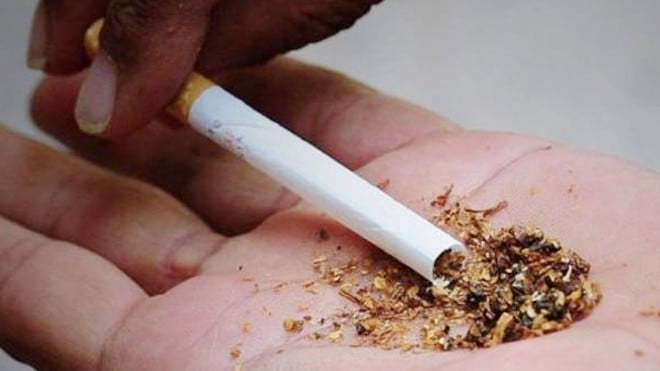
Students on campuses share why they do drugs, how they procure them and what’s the best way to quit

Drugs on campuses have become a part of ‘popular culture’, especially in the private universities. Not many people know that drug culture has become equally acceptable in public sector colleges and universities. The easily available drugs are ruining valuable young lives due to their addictive effect.
A recent case highlighted by the media was about the death of a student in an elite institution due to heroin overdose. Many more surveys appear in the media about the ever-increasing instance of drugs at campuses. One such survey which got a lot of attention, and reverberated even in the parliament, was about the country’s capital city.
In various interviews with students studying in different institutions of Lahore, it was revealed that they used drugs for three major reasons: one, to appear fashionable and trendy; two, to get rid of their problems and isolation from society and family; and three, because of peer group pressure.
"Salvation, illusions, peace and relaxation drive me towards drugs such as hash, cocaine and weed. I was 21 when I first had them. I take either of these twice a day and have been doing it for the last three years," says Saeed, a graduate student in a public sector university in Lahore.
Contrary to the common belief, female students are taking to drugs in great numbers. There are cases where they claim to be doing this in order to prove their rebellion against the "masculine culture" and "norms of society".
"We started it because we thought why can’t females smoke and have drugs in a society where it is okay for men to do so. We want to break the stereotype -- masculine taboos of society. If men can have alcohol and weed, why can’t we?" asks Saima, postgraduate student of a semi-government institution.
"We don’t do drugs on a regular basis. We’re not addicts. We know their harmful effects; we only do it for relaxation and entertainment," says Nida, her friend from the same university.
Many young people narrate how they don’t get to spend a lot of time with their families and parents or how social media has cut down their extracurricular activities. They start feeling isolated and need something to get away from their situation and that drives them towards drugs.
"I never wanted to start it but whenever I thought that my parents and family have no time for me, I felt lonely. I started using drugs to calm down my seclusion and solitude," says Faiza, 24, student of a private sector university.
Students have also invented reasons for doing drugs. Some are figments of their imagination while for others they rely too much on the internet.
"Drugs inject in me positive feelings. Whenever I have them, I become more focused, attentive and calm towards my work and education. I feel high and even science has proved that weeds help in PTSD (Post Traumatic Stress Disorders) and ADHD (Attention Deficit Hyperactivity Disorder)," says Umair, 25, a postgraduate student in a public sector university. "There are many researches on the internet which advocate drugs. Besides, drugs are legal in 22 states of United States of America."
An unusually large number of students get addicted due to peer group pressure. Those who are on drugs offer it to their new friends by giving them lame reasons, sometimes by just putting pressure on them. Some of these students get involved with the drug mafia, because they need money to buy more drugs for themselves. Their salvation lies in introducing it to more and more students, friends.
Some students get discounts and some get percentage in the profit of drugs’ sale. That’s how they fulfill their own desire and also make profit through drugs.
"I know a few students who are suppliers of drugs in the universities. No one doubts them because the guards think of them only as students. But, in some cases, the guards are also involved in supplying drugs," says Hamza, a 24-year-old B.Sc student in a public university.
"Some wardens of hostels as well as some students’ representatives are also involved in the business. They have become like a mafia in public universities," he explains.
It’s a fact that the suppliers have their facilitators among students as well as the college administration. That is how they are running this business relentlessly, without any fear.
Sports is something that prevents or brings back young people from addiction. "I recall the time when I used to have drugs with a strong sense of guilt. I had lived my life as a sportsman. So I could not bear to be a person who was spoiling his life or trying to seek happiness and relaxation through drugs. The realisation came in the form of strong guilt pangs and I decided to quit," says Rehan, who now plays cricket for a club in Lahore but had remained addicted to drugs for two years.
"I had started drugs because of my friends and some tough things going on in my life. Gradually, I became addicted to them. Then suddenly, I saw the light and decided to quit drugs and focus on my game," says Rehan.
Drugs at campuses are a clear and present danger. We should not blame and isolate the victims of drug addiction without understanding and looking at its root causes. A certain amount of care and attention from the society and families can help them get out. They must be drawn to extracurricular activities like sports, events, festivals and social gatherings. They must know they can seek fulfillment and be happy without drugs.
*All names in the feature have been changed to protect privacy.